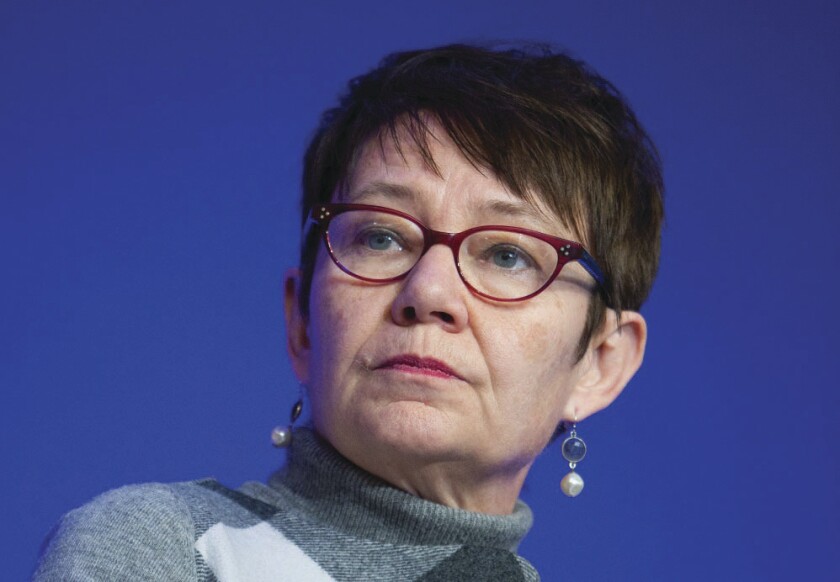When governors of the European Bank for Reconstruction and Development meet in Marrakech on Wednesday, top of their agenda will be how to cope with the unprecedented crisis of the war in Ukraine.
But they will have to juggle this with a host of competing demands that must be handled diplomatically, as the EBRD strives to secure its relevance.
“It’s about finding a balance between three or four strategically really key priorities,” said Manfred Schepers, CEO of development finance firm ILX Management and a former CFO of the EBRD. “One is the role of the Bank in climate finance in its existing countries of operation; the second supporting those countries in the region being affected by the Ukraine war. Thirdly, what do you do in Ukraine — everybody feels the bank should do its utmost, but that’s very difficult at the moment. And the fourth, long term issue is a very logical discussion about the role of the EBRD in Africa.”
How the Bank addresses this knot of problems while satisfying its disparate shareholders is likely to determine whether Odile Renaud-Basso, the EBRD’s president since November 2020, can establish it in stakeholders’ eyes with a fresh sense of purpose.
Public opinion will expect the EBRD to be at the forefront of trying to help Ukraine.
In early March it set up a €2bn Resilience and Livelihoods Framework to support Ukraine and countries hosting refugees. Further announcements are expected this week.
The EBRD has been talking to its shareholders about support to increase help to Ukraine, including possibly shareholder guarantees for some assets, or means to share the burden. During Tuesday, member governments were pledging donations to support the EBRD’s efforts, including $500m expected from the US government.
Writing off Russia
Before that, the Bank faces financial loss from the war. Analysis by Chris Humphrey, a senior research associate at the Overseas Development Institute (ODI), in April showed that Russia, Belarus and Ukraine respectively accounted for 0.5%, 1.7% and 7.2% of the EBRD’s loan balances and 15.4%, 0.8% and 5.9% of its equity portfolio.
Much of this may have to be written off or restructured. “This will have implications for its development activities in other countries in the coming years,” Humphrey argued, saying it would “tighten lending headroom… The exact scale is difficult to predict at this stage, but EBRD’s currently solid capitalisation levels give it breathing space.”
The Bank ceased making new investments in Russia in 2014 when it invaded Crimea and southeastern Ukraine, and is exiting its portfolio, though this will take time. It has also reduced its activity in Belarus.
Privately, some close to the EBRD voice misgivings that its explicit commitment to democracy and free markets — which separate it from other MDBs — are anachronistic, a relic of its foundation at the end of the Cold War. The Bank is sometimes seen in recipient countries as ideologically driven by Western capitalism.
That stance is hardwired into the Bank, as is the EBRD’s commitment that at least 60% of its investments in each country must be in non-state recipients. In practice, about 80% of the EBRD’s money goes to the private sector and municipalities.
The ODI paper argued for relaxing this, particularly to help Ukraine. “Many borrower countries have substantial public investment needs that EBRD could support at a much greater scale than it does currently,” Humphrey said.
But the EBRD sees its expertise in private and municipal sector lending as a strength. “There are other institutions very well equipped at the sovereign lending level,” said Schepers. “Potentially the EBRD could do some of it, but the EBRD is not so large, and the amounts needed are vast. What is a scarce resource? Effective private sector finance. That’s the real contribution of the EBRD, and the amount of business to be done post-war in Ukraine in the private sector is very significant, particularly if private sector financiers are not engaging.”
Sub-Saharan Africa decision
Despite the urgent needs of Ukraine, the Bank is expected to decide in principle on Wednesday to go ahead with beginning to operate in sub-Saharan Africa.
There is a plan for how to implement this, but it will not be on the table this week. African countries would have to become EBRD members before they could receive funding, so any financing is a way off still.
